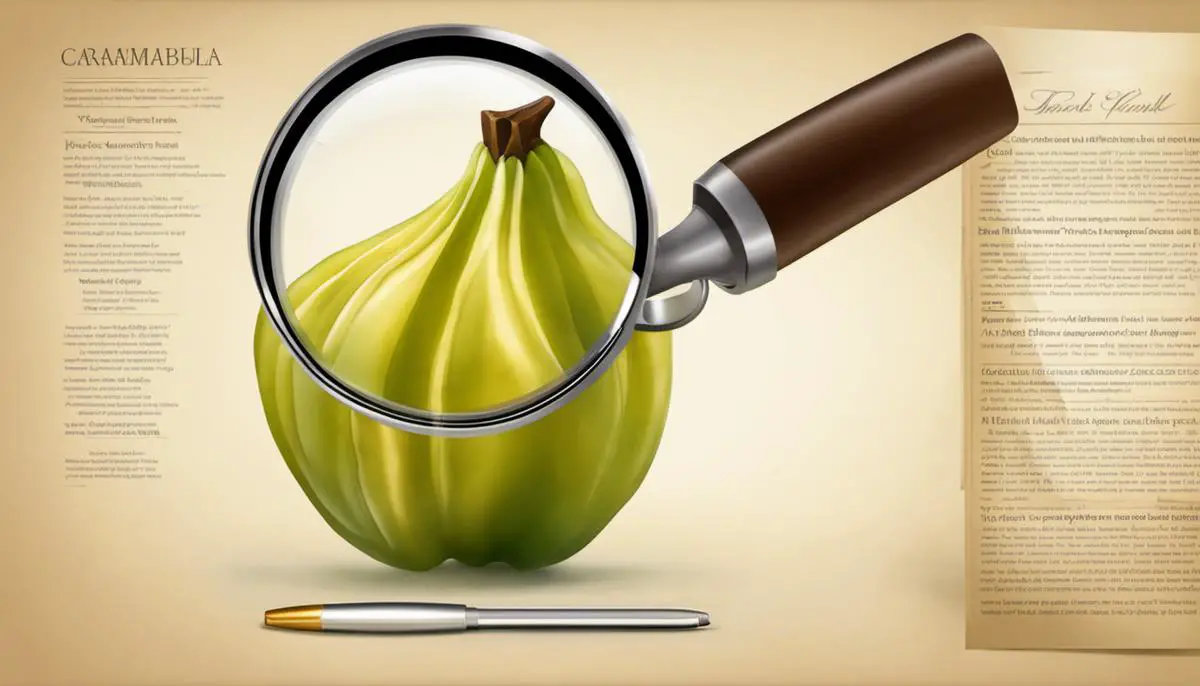Delving into the world of exotic fruits, one rapidly discovers a bounty of flavors, textures, and health benefits that go beyond the ordinary. Among these treasures is the starfruit, or carambola, a five-pointed tropical delight with substantial nutritional value. Originating from Southeast Asia, this juicy, tangy fruit is loaded with vitamins, antioxidants, and fiber, offering numerous health benefits. However, its interaction with kidney health has sparked intriguing discussions in the medical community. This piece will explore the intricate relationship between carambola and kidney health, laying bare the scientific evidence, potential risks, and expert opinions on this captivating topic.
Understanding Carambola
What Is Carambola?
Carambola, also known as star fruit, is a tropical fruit recognized for its distinct star shape when cut across. The fruit grows on the Averrhoa carambola tree, part of the Oxalidaceae family, indigenous to South and Southeast Asia. Today, carambola is cultivated in tropical and subtropical regions worldwide due to its unique taste and high nutrient content.
Types of Carambola
Primarily, two kinds of star fruit are available: a smaller, sour variety and a larger, sweet one. The sour variety tends to be more fibrous and best used in cooking, whereas the sweet kind is often eaten fresh or used in salads and desserts.
Nutritional Contents
Carambola is a nutrient-dense fruit providing numerous essential vitamins and minerals. This potent fruit is rich in vitamin C and contains smaller amounts of vitamins A, B1, B2, and B3. It offers a good dose of fiber, critical for digestive health, and is a source of minerals such as potassium, zinc, iron, and phosphorous. Moreover, carambola is low in calories and fat, making it a healthy snack or dessert.
Health Benefits of Carambola
Consumption of carambola provides a plethora of health benefits. Its high vitamin C content aids in boosting immunity, while the fiber content promotes digestive health. Additionally, carambola’s antioxidant properties can help reduce inflammation and protect against chronic diseases such as heart disease, cancer, and type 2 diabetes. Furthermore, its high potassium content contributes to heart health by helping maintain regular heart rhythm and controlling blood pressure.
Understanding Carambola’s Effect On Kidney Health
Carambola, also known as starfruit, is generally considered safe for individuals with healthy kidneys. However, it may pose health risks for those with pre-existing kidney conditions. This is primarily due to its high amount of a compound known as oxalate, which can contribute to the formation of kidney stones especially in individuals already dealing with kidney disease.
The oxalate in carambola has the potential to combine with calcium, forming crystals that can accumulate in the kidneys. This process leads to the formation of kidney stones. Consequently, if you are susceptible to kidney stones or are dealing with kidney disease, limiting your intake of high-oxalate foods, like star fruit is advisable. Extreme consumption of carambola can induce star fruit nephrotoxicity, a severe condition typified by toxins or waste accumulation in the blood due to impeded kidney functions.
In severe cases such as renal failure, carambola consumption could lead to intoxication, as the kidneys may be incapable of filtering and eliminating the fruit’s toxins. Symptoms can range from hiccups and vomiting to more severe effects such as seizures or even falling into a coma. Therefore, if you have kidney ailments or are on a renal diet, it’s crucial to approach the consumption of carambola cautiously and seek advice from a healthcare professional for personalized dietary guidelines.
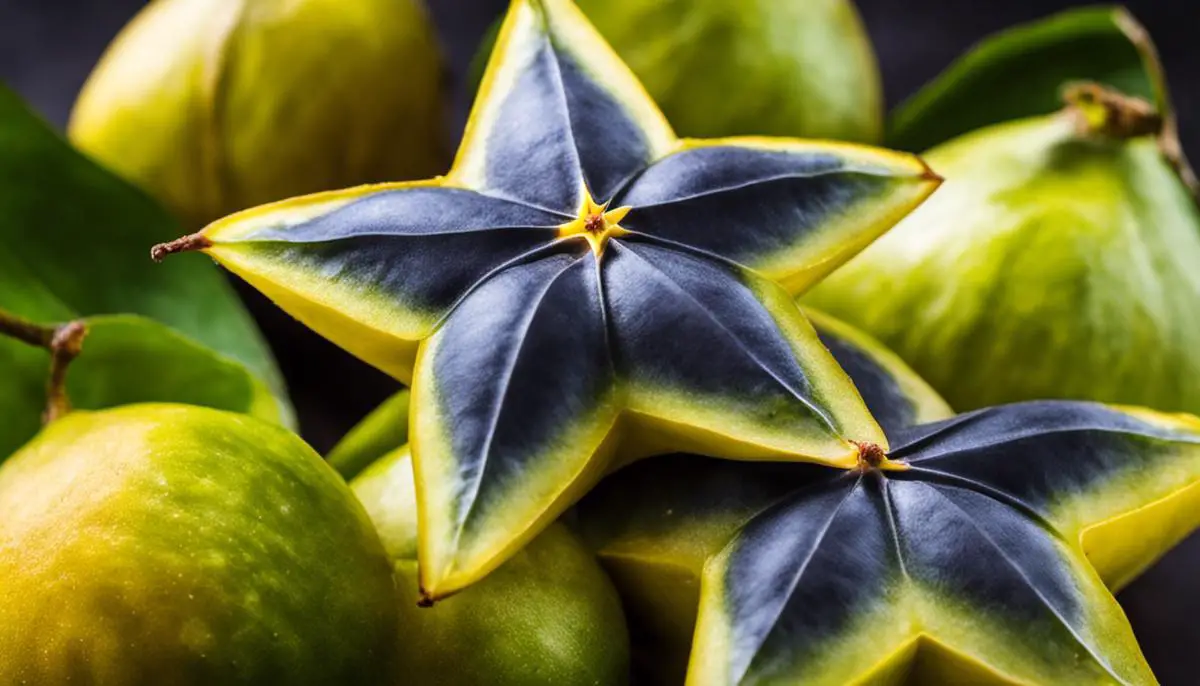
Carambola and Kidney Health: The Connection
Getting Acquainted With Carambola, the Starfruit
The carambola, better recognized as starfruit, is a tropical fruit known for its distinctive star-like shape. This fruit is native to Southeast Asia but is now seen in several parts of the southern United States and other tropical locales across the globe. Thanks to its healthy dose of fiber, vitamins A, C, and E, as well as potent antioxidants, starfruit offers a multitude of health benefits. But, its high oxalate content calls for sensible consumption, particularly for individuals with kidney conditions.
Carambola and Potentially Toxic Compounds
However, despite its nutritional benefits, carambola may pose significant danger to certain individuals, particularly those with kidney problems. The fruit contains a high concentration of oxalic acid, which can lead to the formation of kidney stones, and a neurotoxin called caramboxin. Carambola also contains a significant amount of potassium. For most people, this is not a problem, but for those with kidney disease, the body might have trouble eliminating excessive potassium, leading to a potentially dangerous condition known as hyperkalemia.
Carambola and Renal Failure: A Detailed Connection
Despite being delicious and nutritious, carambola has been linked to a number of serious and potentially fatal kidney-related problems. In the past, consumption of starfruit juice or raw fruit has been linked to acute renal failure and severe neurotoxicity in patients with chronic kidney disease. The toxin caramboxin in carambola can’t be effectively removed in those with impaired kidneys, leading to these severe effects.
Patients with chronic kidney disease are at risk
Patients with chronic kidney disease or those on dialysis are advised to avoid or limit carambola consumption as their bodies may not effectively remove these toxins, causing them to accumulate in the body and potentially harm neural structures and renal function. High amounts of potassium present in starfruit can rise to dangerous levels in the bloodstream of those with kidney problems, leading to muscle weakness and irregular heartbeat.
Distressing Symptoms and Warning Signs
Individuals with kidney conditions who consume starfruit may experience a range of symptoms including hiccups, vomiting, weakness, mental confusion, convulsions, or even go into a coma. Prolonged exposure to the toxins in carambola can lead to lasting kidney damage and can exacerbate pre-existing conditions.
The Role of Healthcare Professionals
Healthcare professionals play an essential role in educating chronic kidney disease patients about the potential risks of carambola consumption. Patients should be encouraged to share their dietary habits and preferences with their healthcare providers. As no potent antidote has yet been discovered, the best method of management for starfruit-induced complications lies in prevention and timely medical support.
An Introduction to Carambola’s Impact on the Health
As an exotic and nutritious fruit, carambola, also known as starfruit, can contribute positively to your health, especially if you have no pre-existing kidney conditions. Its high fiber content and rich antioxidant value make it a valuable addition to a balanced diet, amplifying the impact of your food choices on your overall health. Remember, though, that what works well for one person may not necessarily be ideal for all, highlighting the importance of individualized dietary considerations.
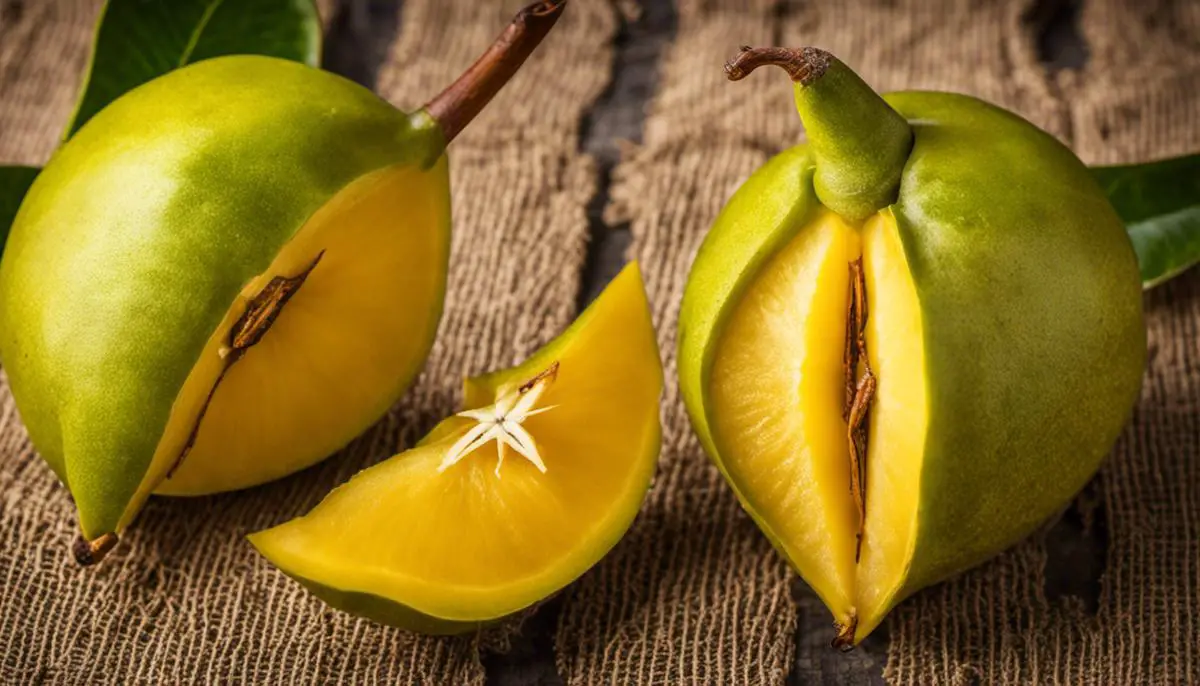
Scientific Studies on Carambola and Kidney Health
The Interplay Between Carambola and Kidney Health
Delving deeper into the topic, scientific studies reveal a web of connections between carambola and kidney health. Starfruit, though beneficial for many, is known to contain a high amount of oxalates. These naturally occurring substances can interact with other elements in your body, such as calcium, leading to the formation of kidney stones. This is especially concerning for individuals with pre-existing kidney issues, who are generally advised to avoid carambola due to its high concentration of these kidney stone-forming compounds.
How Carambola Affects Kidney Function
Carambola is rich in caramboxin, a potent and non-selective excitatory amino acid. This toxin is filtered out by healthy kidneys, but people with kidney dysfunction may not be able to remove this toxin sufficiently. Consuming too much carambola can lead to carambola fruit intoxication. Symptoms range from hiccups, vomiting, and insomnia to more severe neurological effects like seizures. For those suffering from kidney problems like chronic kidney disease, this toxin load can be fatal if consumed in quantities more than the kidneys can handle.
Scientific Studies on Carambola and Kidney Health
There are numerous scientific studies conducted to understand the potential risks of eating carambola for those with kidney problems. For instance, a study published in PubMed in 2007 found that patients with renal failure who consumed starfruit experienced severe neurotoxic effects. Another case report in the New England Journal of Medicine in 2000 revealed that both chronic renal failure patients and those with previously normal renal function showed signs of intoxication after consuming carambola.
Dietary Advices for Individuals with Renal Disorders
From these studies, it can be concluded that individuals with renal disorders should exercise caution when it comes to eating carambola. If possible, including it in the diet should be avoided to prevent an overload of toxins that the kidneys may struggle to eliminate. Those in good health with efficient kidney function should also be wary of excessive consumption of carambola, limiting intake to moderate amounts.
Prevention is Key to Kidney Health
Maintaining kidney health is critical and having a balanced diet plays a significant role in that context. The National Kidney Foundation recommends a diet low in sodium and high in fresh fruits and vegetables. Drink plenty of fluids, limit alcohol intake, and exercise regularly. Always consult with a healthcare professional before incorporating any new food items into your diet, especially if you have a pre-existing kidney condition.
Carambola and Dialysis Patients
For dialysis patients, the consumption of carambola is generally not recommended due to the presence of the neurotoxin, caramboxin. Since dialysis cannot effectively remove this toxin, it can build up to potentially dangerous levels in the blood, leading to neurological complications that can have detrimental effects on dialysis patients.
Understanding Carambola and Kidney Health
The star-shaped sweet and tangy fruit, carambola, also known as star fruit, has enormous popularity in numerous tropical regions. Much of its appeal lies in its essential nutrients, like Vitamin C, potassium, and fiber, that are inherently beneficial for those with healthy kidneys. However, it’s worth noting that individuals with kidney disorders should approach this fruit with caution due to the possible risks associated with its toxin, caramboxin.
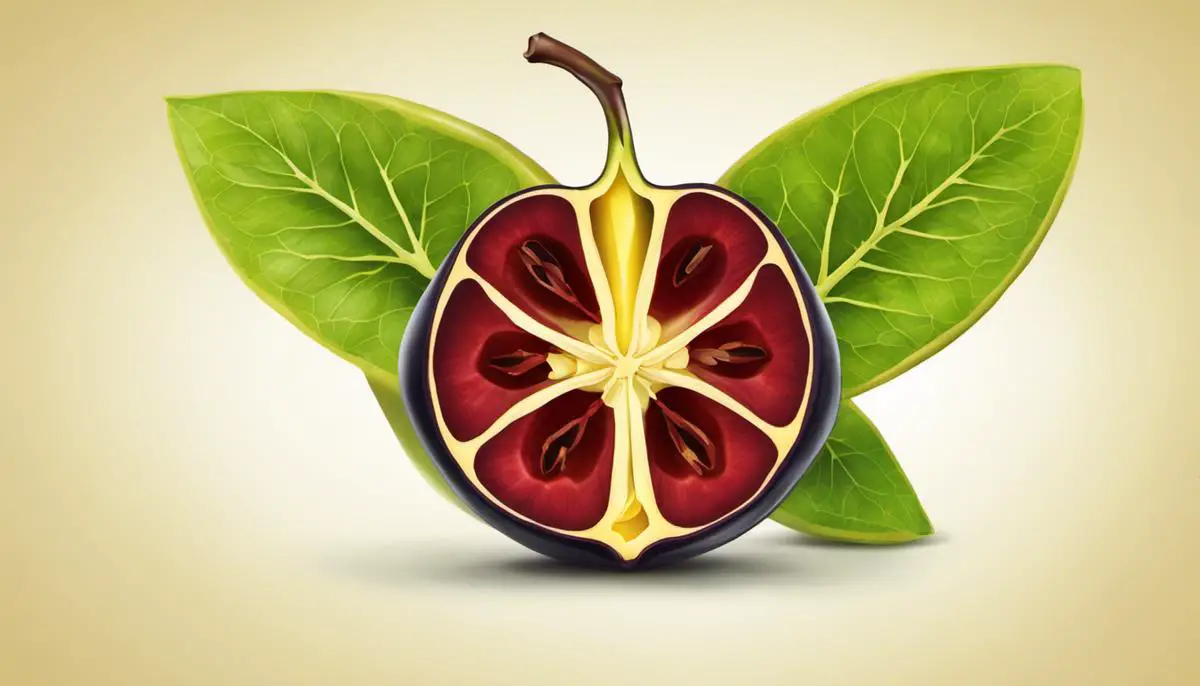
Potential Risks and Safety Considerations
The Mixed Impact of Carambola on Kidney Health
While the essential nutrients in carambola offer various health benefits, its relationship with kidney health isn’t as straightforward. The fruit indeed contains a wealth of beneficial components such as vitamin C, potassium, and fiber, which are beneficial to one’s health. However, for individuals with compromised kidney function, caution must be exercised due to the potential harm linked to its inherent toxin, caramboxin.
Potential Risks of Carambola Consumption to Kidney Health
The crux of the issue lies in the content of oxalate and caramboxin found in the carambola. Oxalates are a natural substance found in certain foods, which, in large amounts, can crystallize and cause health issues like kidney stones. More specifically, the presence of caramboxin, a neurotoxin, can pose a serious threat to individuals with kidney issues as their kidneys may not effectively filter out this toxin.
Impact of Caramboxin on the Kidneys
The healthy functioning kidneys play an instrumental role in filtering and removing toxins like caramboxin from the body. However, in those with pre-existing kidney conditions, caramboxin cannot be efficiently removed, and this accumulation can become toxic, leading to a potentially fatal condition known as star fruit nephrotoxicity. Symptoms can vary from mild such as hiccups, vomiting, and confusion, to severe ones like seizures and even coma.
Precautionary Measures and Recommendations
Given these potential risks, those with kidney disease or other renal health issues should be particularly mindful of their carambola consumption. Consult with your healthcare provider before adding it to your diet if you have a history of kidney disease.
Even in cases of healthy individuals, moderation in consumption is recommended to avoid the formation of kidney stones. Staying well-hydrated can also assist in the dilution of oxalates and promotion of kidney health.
Approaching Carambola Intake With Caution
If carambola, or star fruit, is incorporated into your diet as suggested by your healthcare provider, it is essential to consume it sparingly and keep an eye on its effect on your kidney health. Conducting regular kidney function tests can be a wise approach to monitoring and addressing any possible issues before they escalate.
Remember, while carambola holds nutritional value, it’s critical to be aware of how it might interfere with your personal health status. Such understanding allows you to harness the benefits of this fruit while also curtailing possible threats to your kidney health.
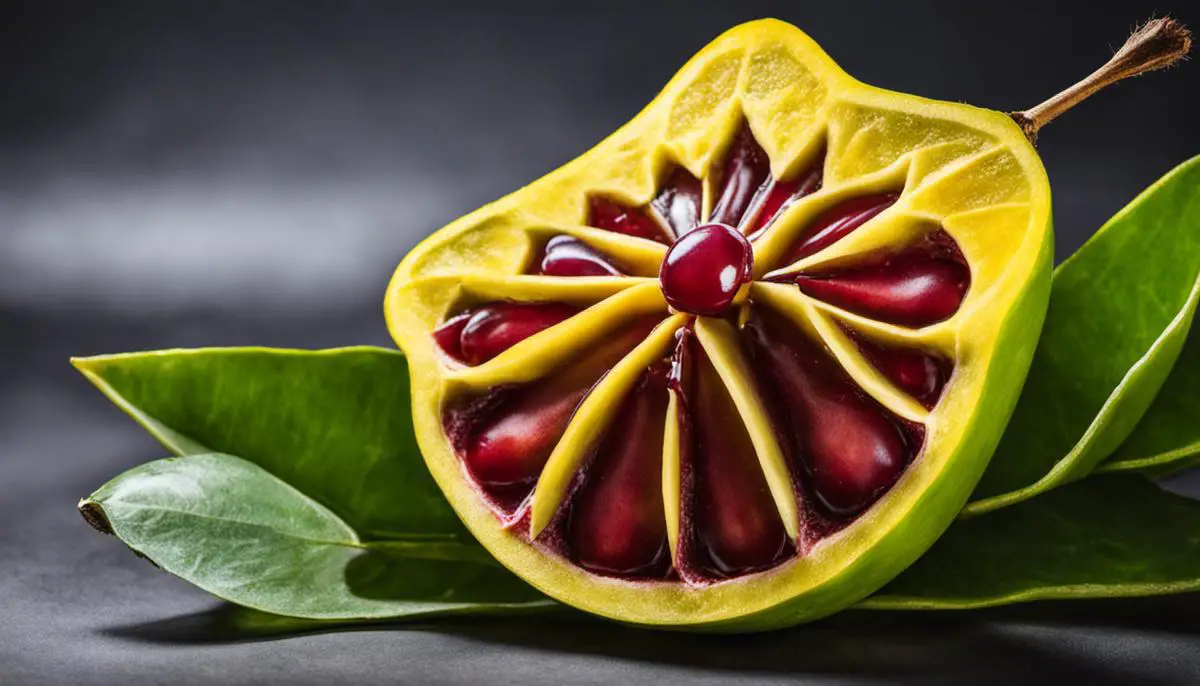
Expert Opinions and Advice
Understanding the Link Between Carambola and Kidney Health
Carambola, also known as “star fruit” due to its distinctive star-like shape when sliced, is a tropical fruit originating from Southeast Asia. Besides being a significant source of Vitamin C and potent antioxidants, it houses substances like oxalic acid and caramboxin, which can be harmful in excessive amounts or for those with kidney ailments.
Nutrition professionals advise caution regarding carambola intake, especially for people with kidney disease. Oxalic acid, which is expelled from the body via the kidneys, could augment the risk of kidney stone formation in susceptible individuals.
The presence of caramboxin, a neurotoxin found in carambola, is of particular concern. Healthy kidneys can efficiently eliminate caramboxin from the body; however, in those with kidney disease, this process is hampered, risking accumulation of the toxin. This could potentially cause “star fruit poisoning” or “star fruit neurotoxicity,” a life-threatening condition.
According to clinical nutritionist Dr. Michael Greger, symptoms of star fruit poisoning can range from relatively mild manifestations like vomiting and hiccups, to serious ones including mental confusion, seizures, and in some cases, even death.
Recommendations for Kidney Patients
For individuals with kidney disease, nephrologist Dr. Linda Fried suggests avoiding carambola altogether due to its potential neurotoxic and nephrotoxic effects.
Dietician Janeane Reagan emphasizes the importance of dietary restrictions for kidney patients, including a low-potassium diet besides avoiding carambola. The improper intake of potassium can overwhelm the kidneys leading to hyperkalemia, a dangerous, sometimes fatal, elevation of potassium levels in the blood.
On the other hand, nephrologist Dr. Leslie Spry, a spokesperson for the National Kidney Foundation, stresses the need for personalized advice for kidney patients. Diet can affect kidney disease progression and symptom management, but what works for one patient may not for another.
Spry advises kidney patients to work closely with their doctors and dietitians to develop dietary plans suitable to their specific needs and to ask about potential risks associated with various fruits and vegetables, including carambola. While it’s crucial to focus on foods that support kidney health, it’s equally as important to avoid or limit foods that may pose risks, especially in large quantities.
Although carambola can be a healthy addition to many diets, it’s not suitable for everyone. Individuals with kidney issues should take this advice seriously and adjust their diets accordingly to maintain their health or prevent further complications.
The Need for Further Research
Medical professionals, including nephrologist Dr. William F. Clark, encourage more research into the potential benefits and risks of carambola, especially among the population with kidney disease. Although a number of individual case reports and small studies have demonstrated star fruit’s potential dangers for kidney patients, larger-scale epidemiological studies are needed to provide more definitive guidance for patients and healthcare providers.
The experts’ consensus is that people with kidney disease should be cautious about consuming carambola and always consult with their healthcare providers about any potential dietary changes. It underscores the importance of dietary moderation and personalized dietary plans for maintaining kidney health.
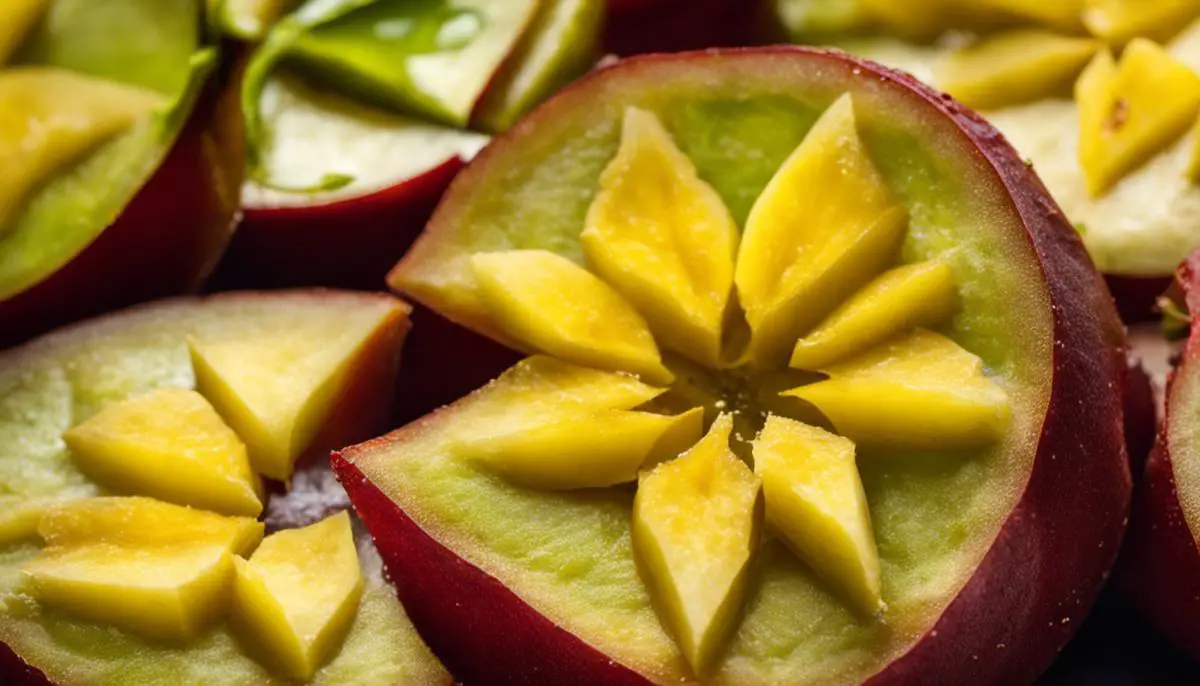
The connection between carambola and kidney health is both interesting and complex, underlining the importance of a systematic approach when incorporating it into the diet, particularly for those with kidney conditions. Both its healthful characteristics and potential risks merit attention, in order to harness its benefits, while avoiding any adverse effects. Expert advice from dieticians, nutritionists, and medical professionals serve as an invaluable resource, providing guidance on how best to enjoy this exotic fruit while maintaining solid kidney health. By combining this knowledge with informed choices, one can appreciate the allure of carambola while fostering a healthier lifestyle.
